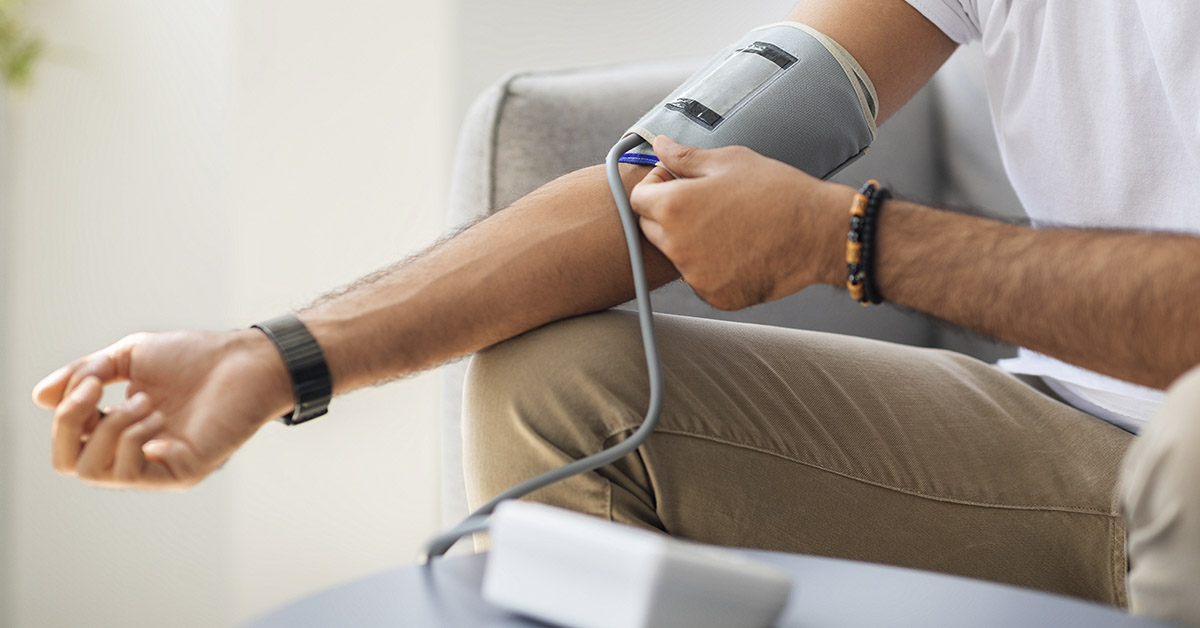High blood pressure is called the silent killer because, unfortunately, it comes with no signs. Usually, the only way to catch it is with a medical device, which is why about 46% of adults with it are unaware, according to the World Health Organization. In rare cases, symptoms appear when the levels are very high. Dr. Evan Levine, a board certified cardiologist, tells his TikTok followers how to look out for signs of high blood pressure.
Headaches
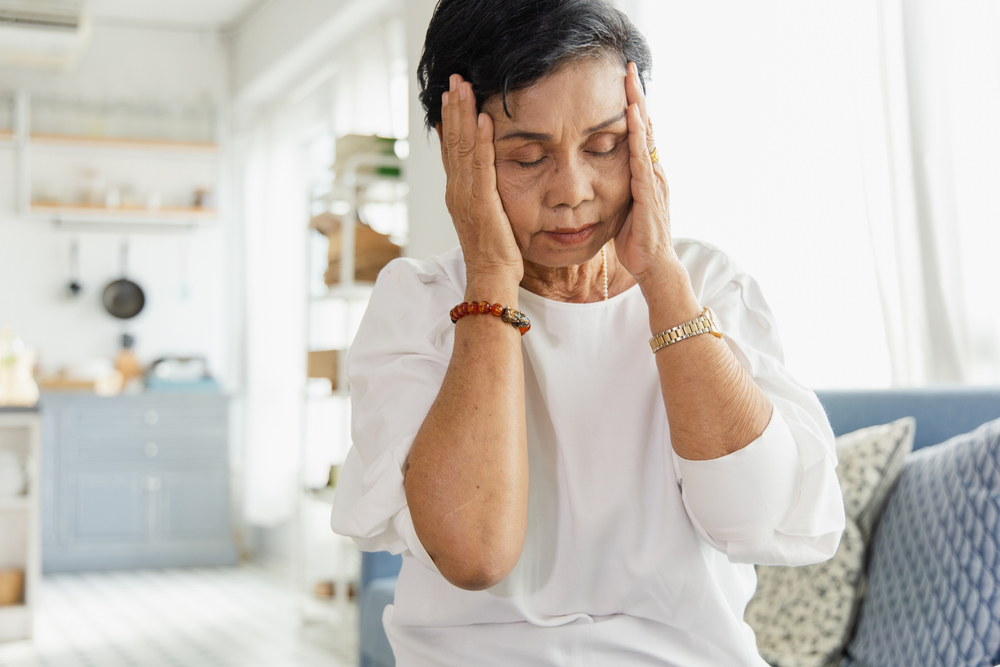
“So what are the most common symptoms of hypertension?” begins Dr. Levine, who educates about heart health on his platform. “…Number one is a headache. It can be across the [fore]head or in the back.” What’s scary about hypertension is that it can slowly damage the body without the person noticing. One organ that is particularly susceptible is the brain. This is why headaches can occur during a hypertensive crisis, which is when rising blood pressure becomes a medical emergency.
Vision changes

“Blurred vision is another very common symptom,” said Levine. This is because uncontrolled high blood pressure can harm the blood vessels in your eyes, leading to blurred or distorted vision, or even complete blindness. According to the American Heart Associations, hypertension can lead to the development of eye conditions like retinopathy, choroidopathy, and optic neuropathy. It can also increase the risk of glaucoma and macular degeneration.
Shortness of breath

“Number three is shortness of breath, usually when you’re walking,” said Levine, “but if it gets really severe you can get short of breath even at rest.” This is usually due to pulmonary hypertension, which is when there’s high blood pressure in the vessels that bring oxygen to the lungs. This can lead to serious damage to the heart, or even heart failure. One of the main symptoms of pulmonary hypertension is shortness of breath, along with palpitations, tiredness, feeling faint, and swelling in the lower body, according to the NHS.
Read More: Can Adding Magnesium To Your Diet Help Regulate Blood Pressure?
Chest pain
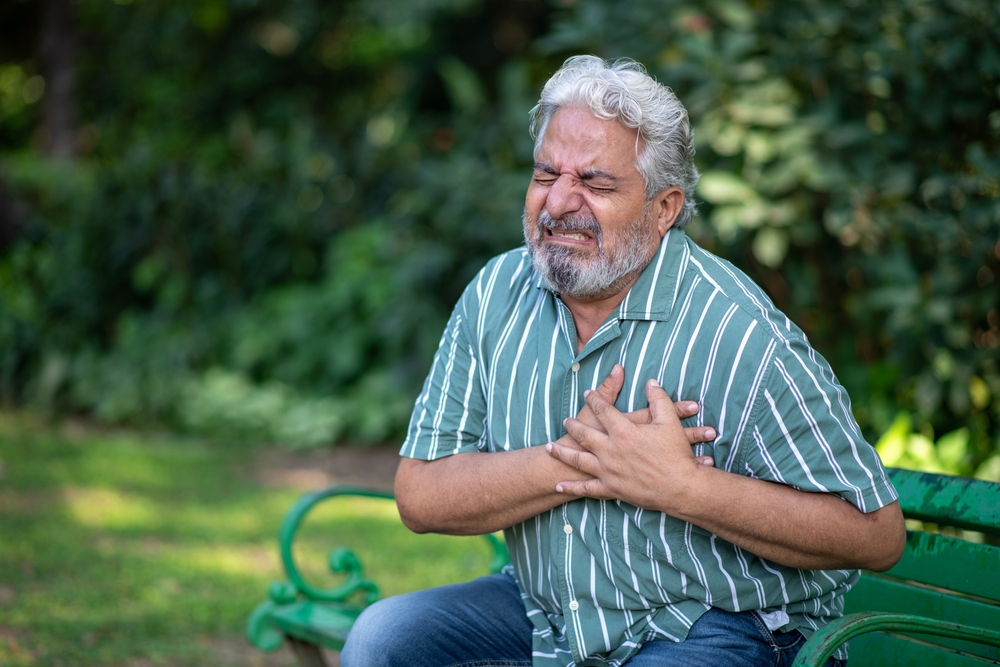
“Number four is chest pains, almost like angina, when we’re walking because the heart is working too hard,” said Dr. Levine. Angina-type chest pain occurs when the heart muscles aren’t receiving enough oxygen, and it can spread to the shoulders, arms, neck, abdomen, or back. All of this is a sign of coronary heart disease, a major complication of uncontrolled high blood pressure. Chest pain is also a sign of pulmonary hypertension.
Nosebleeds
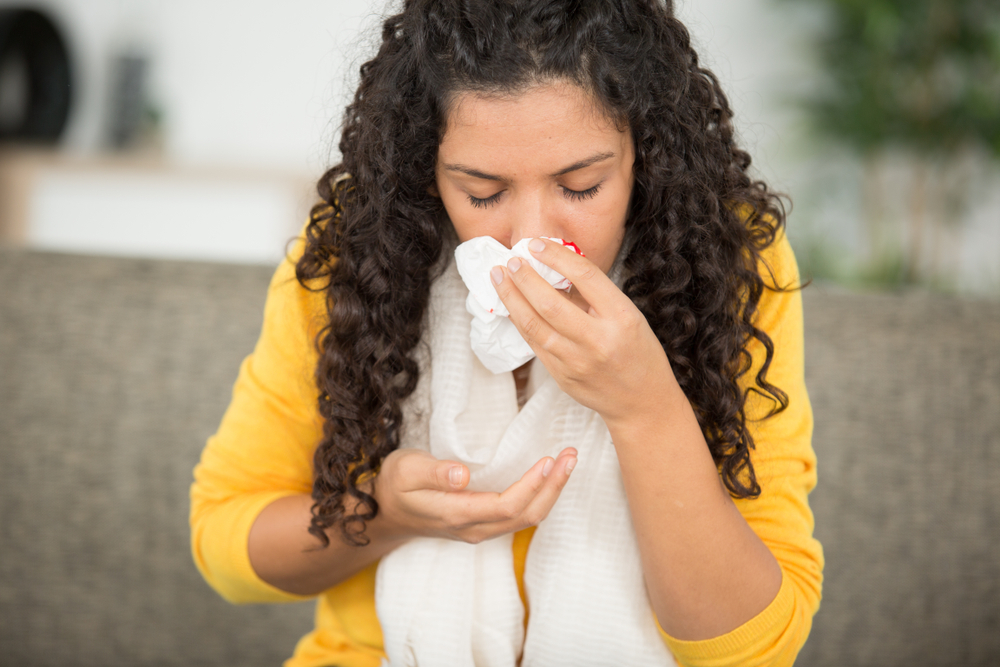
“Some people say nosebleeds, we call it epistaxis,” Levine explained. “Some people don’t believe in that.” He’s referring to the many experts who say that hypertension alone doesn’t cause nosebleeds. However, some cases of extreme hypertension can damage the blood vessels in the nose, making it more prone to bleeding, reports Healthline.
Read More: What’s Considered High Blood Pressure Changes With Age – Here’s What’s Normal For Each Age Group
Frothy urine

“And number six is frothy urine,” Dr. Levine continued. “It’s frothy because you’re spilling protein when you go to the bathroom, and you notice that.” This sign is called proteinuria and it occurs when the kidneys are not filtering properly after damage from high blood pressure. Proteinuria can also occur as a result of diabetes, heart disease, or acute inflammation, according to Hopkins Medicine.
Read More: 10 Warning Signs Your Kidneys Could Be Failing
Nothing
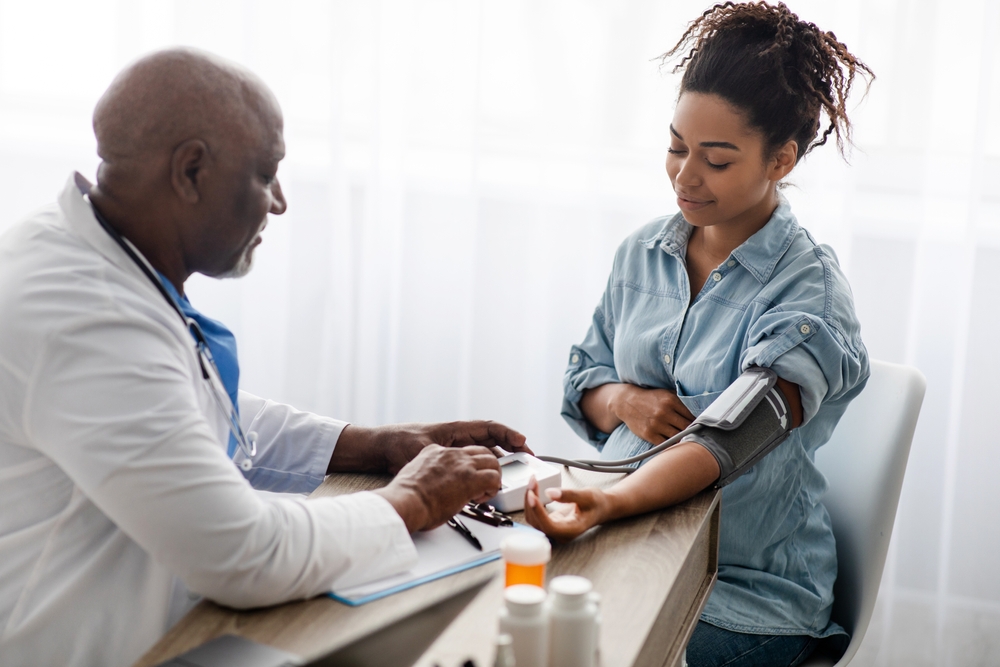
Above all, never wait for signs of high blood pressure to see a doctor about it. “The number one symptom of hypertension, the most common symptom by far that everyone should know about is nothing,” Levine concluded. “That’s right, that’s what we call the silent killer. So you need to get your blood pressure checked at least annually.” For people who can’t see their physician, Dr. Levine recommends getting a Omron blood pressure cuff to check their blood pressure at home. “Remember, the most common symptom of hypertension is nothing. You don’t want to present with heart failure, a stroke, or a heart attack because you didn’t check your blood pressure.”
How to prevent high blood pressure

Unfortunately, WHO calls hypertension “a major cause of premature death worldwide”. Risk factors for this condition include older age, over-consumption of alcohol, smoking, being overweight, a sedentary lifestyle, a diet high in salt, and genetics. People can counter some of these factors with a healthier diet, quitting smoking, losing weight, and adopting a more active routine. Doctors may also prescribe medications to treat hypertension or manage other conditions that contribute to it.
Disclaimer: This information is not intended to be a substitute for professional medical advice, diagnosis or treatment and is for information only. Always seek the advice of your physician or another qualified health provider with any questions about your medical condition and/or current medication. Do not disregard professional medical advice or delay seeking advice or treatment because of something you have read here.
Read More: Managing High Blood Pressure Could Help Reduce Dementia Risk
